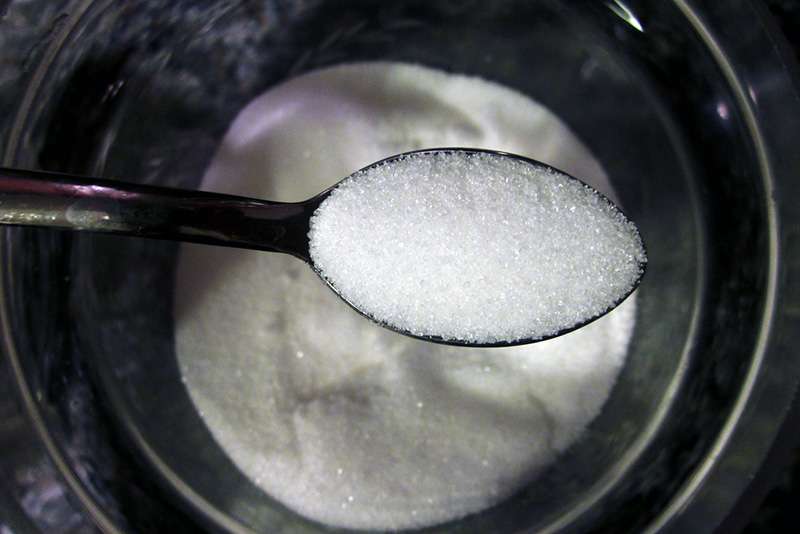Opinion: The revelation that Big Sugar manipulated heart disease research is not an outlier

In the 1950s, heart disease ravaged America. When the then-President of the United States, Dwight D. Eisenhower, himself suffered a heart attack while in office, desperation grew among the ranks of government and scientific establishment to get to the bottom of this seemingly indiscriminate disease.
Fortunately, or so it seemed, elite nutritional scientists from the Harvard School of Public Health had an explanation: The culprit was dietary fat, and thus the key to preventing heart disease would be to put the American public on a low-fat diet. In a 1967 review piece in the New England Journal of Medicine, Frederick J. Stare—chair of Harvard Nutrition—and several of his colleagues concluded that there was no basis for implicating sugar as a major cause of heart disease and that the key culprit was dietary fat.
Although there were some dissenting views in this debate—mostly notably John Yudkin, a British professor who believed the evidence clearly pointed to sugar as the primary culprit—the dietary fat camp won the day, and over the next 30 years America entered into a bold and unprecedented experiment in dietary modification, embracing low-fat, high-carbohydrate diets.
Fast-forward to today, and America is now grappling with an obesity epidemic that threatens to reverse more than a century of gain in longevity. As of 2013–2014, 38 percent of Americans are clinically obese, defined as a body mass index (BMI) greater than or equal to 30 kg/m2, and 8 percent of the populous is in the class III obese range, with a BMI in the range 40 kg/m2 or greater. Obesity has also grown unchecked among children over much of this period, with over one-fifth of African American and Hispanics aged 12–19 falling in the clinically obese range in 2011–2014, according to Centers for Disease Control BMI-for-age growth charts.
Where did we go wrong? Why has it taken us this long to realize that sugar represents a serious danger to our health? According to a striking study published in JAMA Internal Medicine in September 2016, the last three decades in which we have been nearly singularly focused on dietary fat as the cause of heart disease may have had its origins in a concerted effort by the sugar industry to ensure continued demand and market share for its product at the expense of public health.
The study, authored by Cristin Kearns, Laura Schmidt, and Stanton Glantz, reveals that the Sugar Research Foundation enlisted leading nutritional experts from Harvard University School of Public Health to write a review piece on the sugar vs. dietary fat debate that would go on to appear in the prestigious New England Journal of Medicine in 1967. The documents uncovered by the research team further reveal that the sugar industry was intimately involved in the research, including selecting the articles to be reviewed and clearly communicating the outcome they were interested in to the investigative team. Drafts of the review were circulated to industry executives prior to publication, and they were paid the equivalent of close to $50,000 for their efforts. When the manuscript was published, several sources of funding were acknowledged, but no mention was made of funds received by the sugar industry.
This may seem like a particularly egregious example—an outlier in a world otherwise defined by beneficent collaborations between industry and academia—but unfortunately it is not. It may also seem like this is all distant history—that things have changed today as academic public health has adopted stricter rules around conflict of interests in research. However, just last year it came to light that the Coca-Cola Corporation paid out millions to establish the Global Energy Balance Network, a scientific network promoting the idea that sedentary behavior—not diet—was the principle cause of the obesity epidemic in America. Further probing of this relationship revealed that Coca-Cola was intimately involved in the research mission of the group and that even the website domain for the organization was registered to the Coke offices.
Influence of Coke on the research enterprise has also extended to my own area of research around the obesity paradox—the finding that a moderate amount of excess weight can be protective to health in certain situations. The most prolific proponents of the obesity paradox have also received consultancies and unrestricted grants from Coke and are some of the very same players who were involved in the now disbanded Global Energy Balance Network.
What are the consequences of these cases of collusion between industry and academic public health in the field of nutrition and obesity research? We can only speculate here, but data on dietary trends over time show very clearly that millions of Americans have shifted their dietary patterns toward low-fat, high-carbohydrate diets in accordance with federal nutritional guidelines. Time will tell, but it is also not a stretch to imagine that industry-backed research suggesting exercise, not dietary causes, are the root cause of obesity, as well as work indicating that a little extra weight may actually be good for you, will also profoundly shape public perceptions and behaviors.
Much progress has been made in managing conflicts of interest since Dr. Stare and colleagues published their review piece on dietary fat and heart disease in the New England Journal of Medicine. However, industry continues to exert inappropriate influence in public health, and more strict controls are urgently needed. This is nowhere more the case than in my field of obesity and nutrition research. As the obesity epidemic rages on, it is critical that we recognize that the goals of the food and beverage industry are fundamentally misaligned with the goals of public health, and that just as was true for big tobacco, we must take every measure possible to ensure they are not given a seat at the table from which to influence the course of public health science.
More information: Cristin E. Kearns et al. Sugar Industry and Coronary Heart Disease Research, JAMA Internal Medicine (2016). DOI: 10.1001/jamainternmed.2016.5394



















